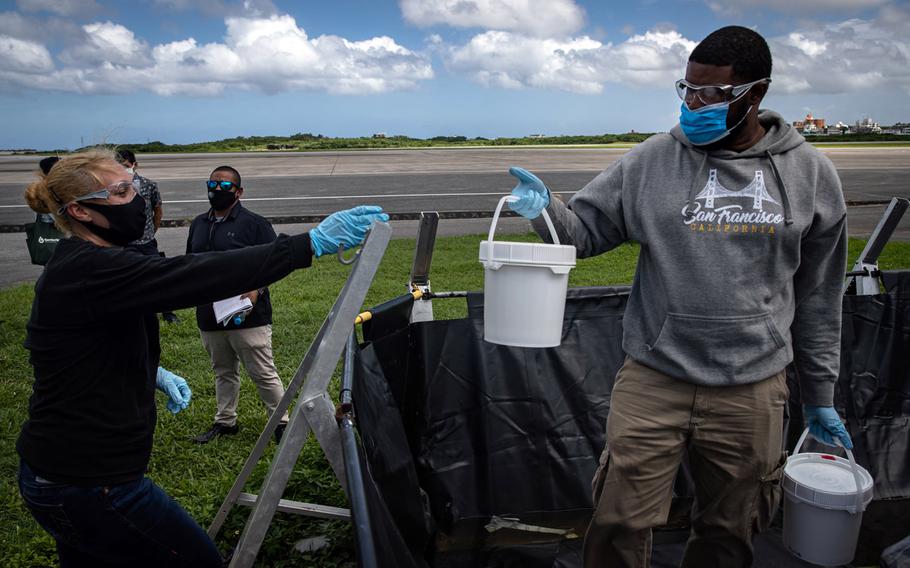
When PFAS Chemicals Contaminate Our Schools, It’s Time To Force Our Way to the Source
MCAS Futenma has channels of water that flow out into the surrounding area, including to Futenma Elementary. According to the Ginowan Chura Water Association, of the three locations tested this time around, the most contaminated area had approximately 1100 nanograms of perfluorooctane sulfonic acid, a form of PFAS, for every kilogram of soil, about 29 times more than the standard level set by the United States’ Environmental Protection Agency. While Japan has an established standard level of PFAS for water, that isn’t the case for soil. Koji Harada, an associate professor at Kyoto University, says, “If this were America, we’d have no choice but to conduct extensive tests to prevent any adverse health effects. We need preventative measures against groundwater being contaminated by polluted soil.”
With PFAS seemingly coming from the military base, it will be vital to conduct tests on the base to determine the level of pollution in the waterways which connect to it. However, the Status of Forces Agreement that grants the military exclusive jurisdiction over its bases poses a large barrier. When PFAS were discovered in one of the many rivers Chatan Water Treatment Plant draws water from, the prefectural government requested access to Kadena Military Base to pinpoint the source. However, as they were denied entry, no tests ever took place there.
In August of last year, it was discovered that military authorities at Futenma defied local opposition and dumped PFAS into public sewer systems. In Japan, PFAS and other foam concentrates are meant to be incinerated as per the Waste Disposal Act. While both sides are in agreement that this costs more time and money, the marine corps decided to go through with dumping its waste, causing this terrible situation.
While there is a supplemental clause in SOFA regarding environmental issues, Japanese authorities may only petition access to American bases if an accident has occurred, and only if military authorities decide that said access will not disturb military activities. It’s clear that this supplemental clause did not do enough to improve SOFA.
On Sept. 7, the Japan Federation of Bar Associations released its “Argument for the Revision of the Status of Forces Agreement and Enforcement of Said Revision,” calling for the application of Japanese environmental law to military bases. The National Governors’ Association has also called for SOFA’s revision. In order to protect the lives and safety of our people, we must craft an agreement that holds the military accountable to the laws of the land.


